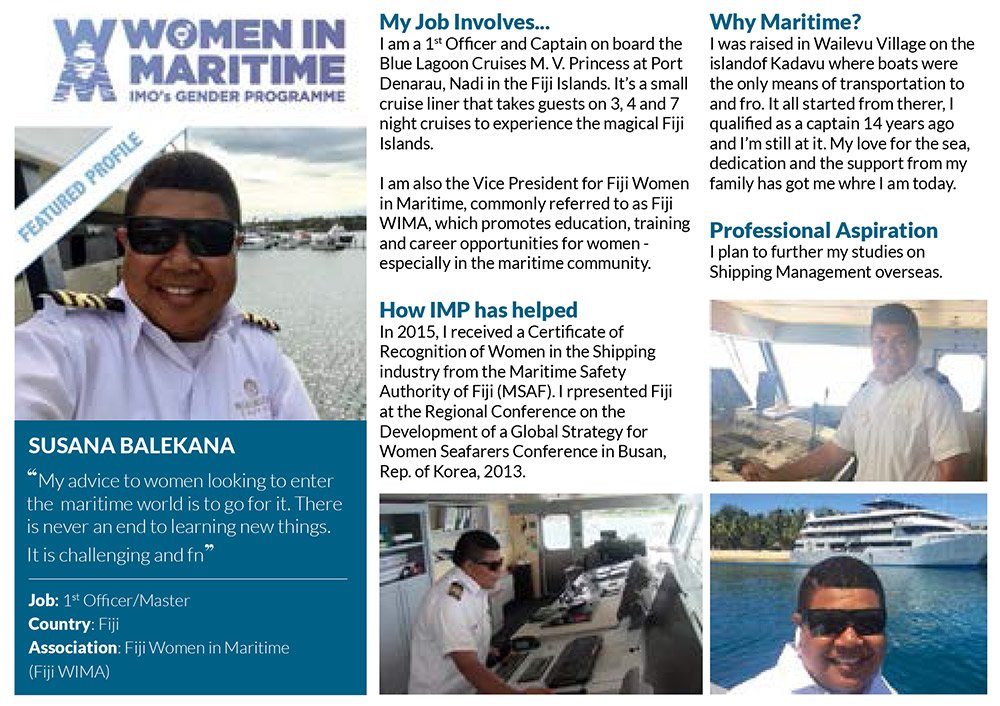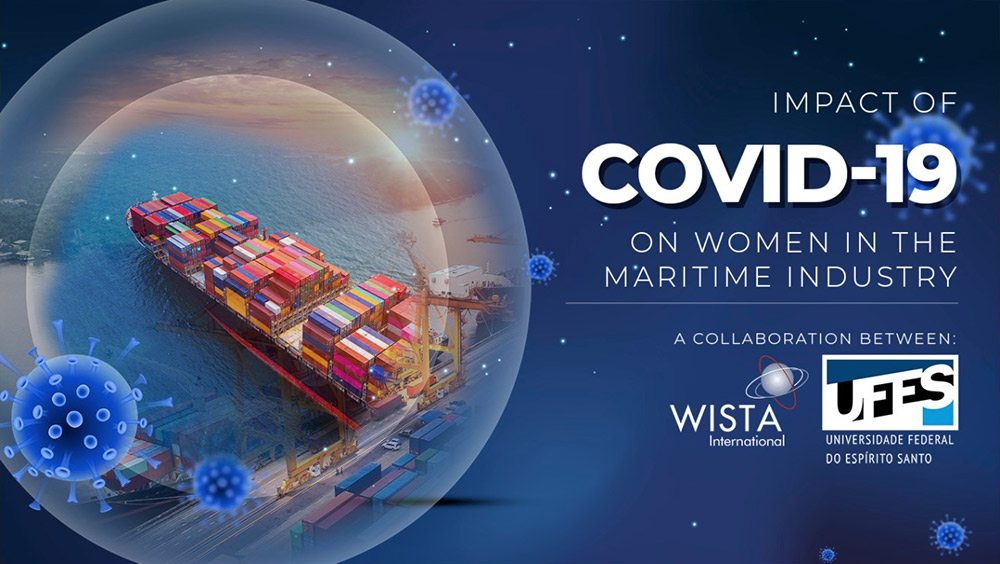With the advent of new technology, There are more opportunities for women. However, another reality is that due to the COVID-19 pandemic, any progress we have made in achieving gender parity in the past decades is now at risk, which we need to address.
The impact of this recession or depression is expected to affect women differently to men, as at the start of the pandemic, women, on average, earned less than men and spent more hours doing unpaid work as carers. Post COVID-19, with the increased care demands at home, their jobs and careers will also be affected by losses and cuts.
From past experience of crises, we can predict that if nothing is done to protect women, the limited progress made in recent decades towards achieving gender equality will potentially be nullified by COVID-19, resulting in, among other issues, a decrease in incomes earned by women and a reduction in women’s participation in the labour force.
- Shore-Based Roles
Recent data show that we have fast- forwarded five years in terms of digital adoption by consumers and businesses. There has been a shift to online shopping, online learning and digital classrooms. Companies are considering letting their employees work fully or partially from home, even after the pandemic. The increased workplace flexibility is also leading to persistent changes to gender norms, boosting gender equality as happened during and after World War II.
The new, albeit forced circumstances are also making employers take notice of the importance of childcare. Hence, even though women are now carrying a higher burden due to the COVID-19 crisis, gender roles in many families are becoming rebalanced or even reversed. Historically, poor social mobility, lack of networking opportunities and social norms usually kept women out of the traditional employment market. However, now that businesses are having to adjust quickly to the In Focus new normal, the need for more innovative and more diverse teams has becomes increasingly urgent, which is encouraging firms to hire more women.

- WOMEN SEAFARERS
The public soon became aware of the suffering caused by COVID-19 to seafarers, such as deteriorating work conditions, the stress of not being allowed onshore, the shortages of hygiene and medical products on ships not allowed to berth, etc. Imagine then, the situation of female seafarers, who had to endure all the same indignities as their male counterparts plus more.
From our side, even though many of the consequences of the crisis were beyond our control, the consequences of the way we lead are not. The right way to lead is by engaging everyone and by striving to ensure the maritime industry becomes sustainable.
- WHAT CAN COMPANIES DO? MAKE DIVERSITY A STRATEGIC GOAL
While most organisations claim that diversity is a priority, many, nevertheless, fall short. A recent survey by Allegis found that while 72% of respondents reported having a diversity and inclusion strategy – or were at least writing one – only 37% said that diversity plays a role in their hiring goals. If companies want to become more diverse by recruiting more female candidates, this has to change. Diversity of all kinds must become a strategic hiring goal, one that is supported from the very top of an organisation.
Despina Panayiotou Theodosiou, president of WISTA International, believes that the increasing awareness of the women in the maritime industry will help to ease the pressure on them and encourage discussions for change. ‘The global pandemic has increased the pressures, both financially and mentally, for women and men, who have to balance their work commitments with family life. Working from home is not always easy, especially in the maritime world as the pressure increases. But the role of women in any household, especially one with children or elderly family members, means they are, in many ways, under greater stress due to their housework obligations. There is a huge potential for redefining the roles of women in the maritime industry. This is an ideal opportunity to re-examine roles, create new career opportunities and give women the support they need.’
- STUDY ON THE “IMPACT OF COVID-19 ON WOMEN IN MARITIME INDUSTRY” A COLLABORATION BETWEEN THE DIVERSITY COMMITTEE OF WISTA INTERNATIONAL AND THE FEDERAL UNIVERSITY OF ESPÍRITO SANTO (UFES)
Sanjam Sahi Gupta, a member of the executive committee of WISTA International and co-chair of its Diversity Committee, thinks that the data gathered by this survey will assist in making informed decisions about the future. ‘While we all know and talk about the impact of COVID-19 on women, it’s important to get data that provides indisputable evidence. We need to use these data instead of assumptions, which might lead to incorrect conclusions. The findings will help us find the gaps and empower us to make informed decisions to support women.’
Fabiana Simões Martins, a member of the executive committee of WISTA International and co-chair of its Diversity Committee, believes that now, more than ever, the maritime industry should place gender equality high on its agenda. ‘At the stage we are at now, it is clear that COVID-19 accelerated change and brought challenges to all, but specifically to women, threatening gender equality goals for the coming years. It is the role of good leaders to engage everyone and put equality in the centre of the agenda toward a sustainable and global recovery. The way to start is by understanding the new challenges that women face globally, and this is the aim of WISTA International’s COVID survey.’
- SCOPE OF THE STUDY
- The study will cover the impact of COVID-19 on the professional and personal lives of women working in the maritime industry.
- The universe of the study will be 3800+ WISTA members from over 54 NWA’s.
- The study will be conducted through digital tools to ascertain qualitative and quantitative data.
- Descriptive and inferential analysis will be done for the qualitative data of a number of in-depth case studies.
- Findings could be considered to understand the impact of COVID-19 on women in maritime, changing job roles, opportunities and challenges. (Could be used to make policy recommendations to support women in maritime).
